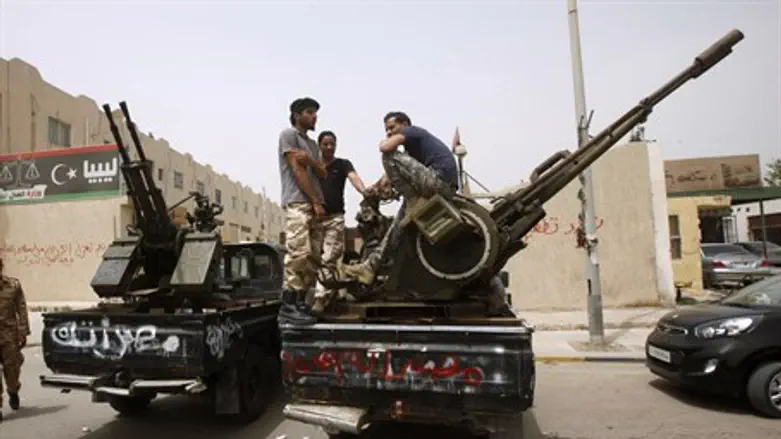
Libya's foreign minister on Wednesday demanded that the UN Security Council lift an arms embargo on his country, so it can fight the Islamic State (ISIS) group.
The Associated Press (AP) reported that Foreign Minister Mohammed Al-Dairi spoke to an emergency session of the council amid regional alarm after ISIS over the weekend posted a video of the beheadings of 21 Egyptian Coptic Christians in Libya.
Al-Dairi stressed that Libya is not asking for international intervention, but said the international community has a "legal and moral responsibility to lend urgent support" and that the region, including the Mediterranean, is in danger.
"If we fail to have arms provided to us, this can only play into the hands of extremists," he warned, according to AP. He told reporters he wanted to see the same attention paid the danger in Libya as has been paid to Iraq and Syria, where a U.S.-led coalition is battling ISIS.
The UN first imposed the arms embargo on Libya in February of 2011, during the civil war in that country between dictator Muammar Qaddafi and rebels.
Libya has been unstable since Qaddafi was overthrown in late 2011, with militia that helped oust him now controlling large parts of the North African country and regularly fighting each other. The threat from ISIS has only added to that instability.
Meanwhile on Wednesday, the foreign minister of neighboring Egypt, Sameh Shoukry, called for a naval blockade on arms heading to areas of Libya outside the control of "legitimate authorities." He did not rule out troops on the ground in Libya and said his country was seeking international support "by all means."
Jordan was circulating a draft resolution on the issue to fellow council members later Wednesday, noted AP.
On Tuesday, Egyptian President Abdel-Fattah Al-Sisi called on the United Nations to approve a new coalition for airstrikes in Libya, where the extremists have set up their first major affiliate outside of Iraq and Syria.
Countries in the region have been stepping up to offer support to Libya since the video of the beheadings emerged. Both Italy and Algeria during the council meeting expressed their willingness to participate in international efforts.
